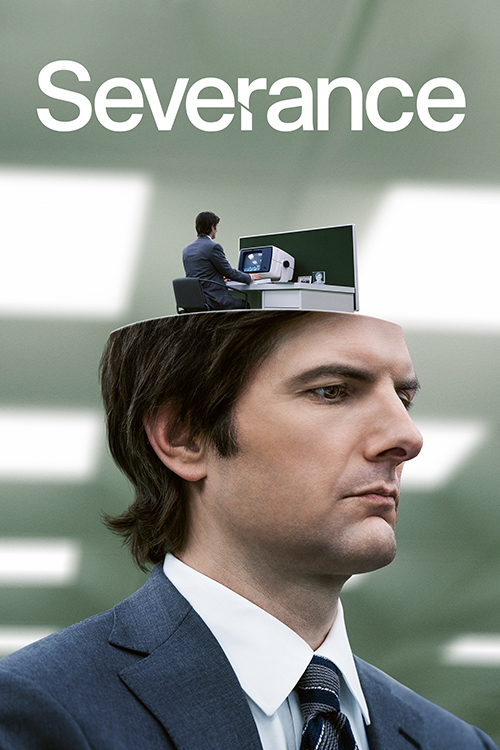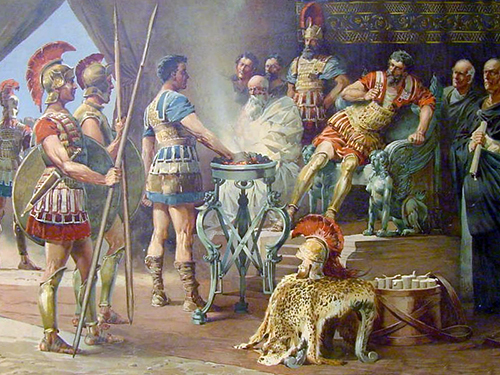The New York Times Sunday Arts & Leisure section printed a three-page (including the cover) article entitled “TV so Well-Made, it Underwhelms,” by James Poniewozik.
The 5/5/2024 cover carried a different title than what appeared on facing pages 12 and 13.
That read: “It’s Comfortable. Too Comfortable,” as well as a subtitle: “Mid TV is polished, professional and cinematic. But where’s the ambition?”
The premise of the article is that many current streaming shows have high-level production values.
Yet, these series are just “Mid” (for Meh, or middle-of-the-road?) TV.
I’m baffled as to why the NYT allotted so much space to this feature article.
Was it to prove that the “Gray Lady” is “keeping up” with streaming TV?
Is it meant to punish Disney+ or Apple TV+ for failing to deliver ground-breaking television?
What was the motive?
Actually, the contrast between the text, and the presentation of Poniewozik’s article, mirrors the author’s criticism of TV, in that the space given to the photos, is way out of proportion to the unbaked ideas.
Murky photographs from Game of Thrones, House of the Dragon, Big Little Lies, Apples Never Fall, Fosse/Verdon, Feud, Breaking Bad, Ozark, Masters of the Air, and Loki take up far too much “real estate” in proportion to the words.
TV and movie execs have always “thrown money” at TV and movie screens.
One of the reasons why director/ producer Roger Corman (who died recently at 98) never joined the “major leagues” was because he didn’t believe in the old “you have to spend money to make money” adage.
Poniewozik mentions around 56 productions in his essay, and nearly all were generated by HBO-MAX, Apple TV, Amazon Prime Video, Netflix, or Disney+.
The cultural hierarchy is clear.
Unless you’re subscribing to all of these services, you’ve no chance of seeing anything that’s “original, provocative, or ‘important.’”
Of the many shows that Poniewozik mentions, I’d be surprised if he really watched more than 25.
As a non-critic, I’ve only watched a fifth of the shows listed: Game of Thrones, Manhunt, Feud: Capote Vs. the Swans, The Bear, Deadwood, Severance, Shrinking, Yoki, and The Morning Show.*
(I still intend to catch up on House of the Dragon.)
I’ve seen so few of these potentially “important” shows because I don’t subscribe to all the streaming services.
Furthermore, I don’t watch dramas and comedies while ironing.
(Poniewozik assumes that everyone multi-tasks, while they watch TV. I reserve my TV and chore multi-tasking for watching the news, and crime shows on Discovery.)
I do agree with some of Mr. Poniewozik’s opinions.
Severance is a great show.
I also have given up on shows after one or two episodes, because they seem to be all style, with little substance.
However, I realize that I could be mistaken.
Some series start out weak, and become much better.
I just don’t have the time to give these shows another chance.
There’s a battle for survival among the streaming services, and one weapon is money.
In order to inspire more people to subscribe, streaming services boost the budgets.
Another tool is moving programs from a free network to a streaming service (like when CBS moved Evil to Paramount), and tempting viewers with one free episode (as when Peacock aired the first episodes of The Traitors on NBC).
I noticed that Poniewozik didn’t offer any opinion on several well-publicized streaming shows.
(Were there financial, or synergy, reasons for these omissions?)
He doesn’t mention Hulu’s Only Murders in the Building (unless he’s referring to it with his crack about Meryl Streep), or HBO-MAX’s Lovecraft Country.
He also omitted other less publicized streaming shows, that my husband and I enjoyed: Foundation, Slow Horses, Devs, Monarch: Legacy of Monsters, and Death and Other Details (to name five).
In one paragraph, Poniewozik attacks three Apple TV+ shows calling them “classy but inert.”
I have no opinion on two of the shows—Constellation (a space drama) or The New Look (about fashion)—because I haven’t watched either.
However, I enjoyed Manhunt, and although it had some flaws, it certainly wasn’t “inert.”
One of the reasons I enjoyed Manhunt was the historical period that it explored.
In episode four, “The Secret Line,” Lafayette Baker (Patton Oswald) breaks up Wall Street’s “Gold Room,” in which “former” wealthy Confederates traded gold against the U.S. dollar.
Later, Baker comments that “justice is a commodity for millionaires.”
(Rather topical to me.)
Tobias Menzies was excellent as the tormented main character, Secretary Edwin Stanton.
Anthony Boyle was fascinating as the fanatic actor, John Wilkes Booth.
How was this particular series inert?
Poniewozik makes a critical error when he half-heartedly watches one episode, and proclaims a show “warmed over,” “forgettable,” “by the numbers,” “comic book,” “toothless,” “padded to the limit,” “superfluous,” or “threadbare.”
Mini-series may be uneven.
Sometimes, concepts are ruined by TV executives.
Sometimes, the viewer is just in the wrong mood.
Most of all, I disagree with Poniewozik’s opinion that productions are “too polished to be awful.”
Of course, polished shows can be awful!
A show can have great cinematography but rotten scripts.
The costumes and sets might knock you over, but if it’s badly cast, who cares?
Poniewozik seems to expect more television to have that rare combination of excellent scripts, well-cast actors, and spectacular production values, in a world in which too many cooks—especially TV executives—may spoil the broth.
Rather than be grateful when creatives come together to make something good, he grumbles because there’s lipstick on a pig, and too many countries provided backgrounds.
His weirdest idea is criticizing artists and producers for “lack of ambition.”
Unless he’s interviewed the people working on the shows, where’s the evidence for that?
James Poniewozik, and The New York Times, shouldn’t criticize creatives for “beautifying” series that aren’t worth a viewer’s time, or not making “ambitious” series.
That argument won’t make TV execs approve more innovative shows.
While creatives may earn their daily bread by doing good work, their untalented overlords are earning much more money for dumbing shows down.
TV execs are throwing more and more dollars at our screens, all for that precious $9.99 a month from millions of jaded consumers.
While a TV mini-series may cost $15 million dollars per episode, the total yearly compensation for a Disney+ or Netflix CEO is in the $25-$40 million range.
No wonder execs think nothing of transporting actors and production artists all over the world.
* Usually, my taste aligns with that of my soulmate, and we watch television together. However, I haven’t joined him as he watches Shogun, Watchman, or Wandavision (3 of the 56 TV series mentioned—in passing—in Poniewozik’s NYT article).





























